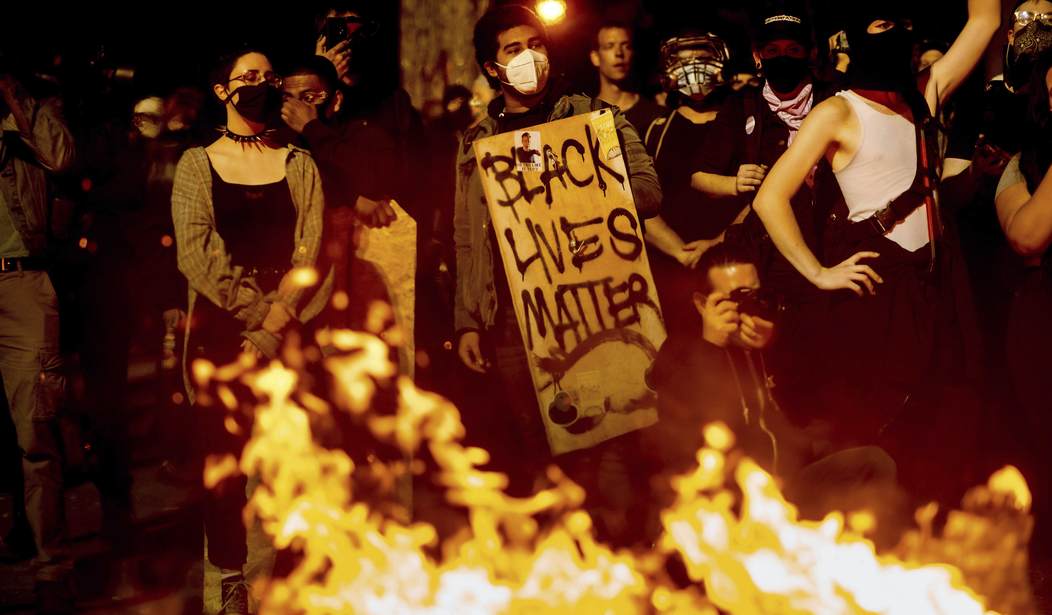Last summer, eight-year-old Secoriea Turner got killed because the SUV she was riding in came too close to a particular Wendy’s in Atlanta. Her parents have now filed a lawsuit alleging that city leaders Mayor Keisha Lance Bottoms, Police Chief Rodney Bryant, and City Council member Joyce Sheperd had been negligent in controlling the area, leading to their daughter’s death. The lawsuit also names the city government of Atlanta.
Secoriea’s death followed riots in the city after the death of George Floyd and the arrest of several officers for using excessive force while controlling crowds. Then, Rayshard Brooks got shot in a Wendy’s parking lot and died after assaulting two officers, taking a taser, and turning to shoot it at Officer Garrett Rolfe, who had gotten to his feet.
When Rolfe was arrested on murder charges by a district attorney fighting for reelection, Atlanta police officers went on a sick-out. I can still recall listening to the scanners online for the downtown districts and hearing eerie silence. The dispatcher was calling, no one was answering. Activists proceeded to burn down the Wendy’s and to hold the area hostage for seven days. It was Atlanta’s own little CHAZ.
Instead of clearing the property, the city leaders decided to negotiate with the terrorists. That is where Councilwoman Shepard came in. According to the Atlanta Journal-Constitution:
Councilwoman Joyce Sheperd, along with neighborhood leaders and others, had been working on negotiations with the people who occupied the Wendy’s in recent weeks, but the talks fell through Thursday.
Sheperd said the people on the Wendy’s site were told Thursday that, because the negotiations had soured, the city would be barricading the parking lot. The plan was to install the barricades that very day, but the city didn’t have the type of permanent barriers it wanted to use.
The task was put off until Monday, when the correct materials were expected to be in hand.
Those occupying the site wanted a community center built and named after Brooks. The city did not own the property and could not meet the demands even if they wanted to. Meanwhile, armed militants stayed in the area, effectively blocking the intersection. When the SUV Secoriea was riding in approached and attempted to make a U-turn, the armed “protestors” shot at the car, killing her. Within 24 hours, three more people had been killed in the same neighborhood.
Even then, city leaders did not act. Republican Governor Brian Kemp sent in the National Guard when it was clear that Bottoms was not keeping Atlanta residents safe. The July 4 weekend included 20 shootings and three other deaths. The city’s violent crime and murder rate have continued to climb since last summer. Bottoms announced she would not be running for reelection. Given her complete lack of leadership in securing Atlanta’s streets after decades of improvement, she should not.
The lawsuit seeks to hold her personally accountable, and to hold the city government accountable, as well. Residents could also use legal action as a mechanism to protect public safety in other cities where leaders have cut the police budgets or otherwise undermined public safety. For example, Mayor Bill de Blasio dissolved the anti-crime unit in New York City. This unit was responsible for getting most illegal guns off the street, and murders have skyrocketed since de Blasio dissolved it. Minneapolis, Portland, San Francisco, and Los Angeles are all in similar situations.
Maybe more lawsuits can reverse the trends in policing and crime in these cities. If judges penalize leaders for being negligent, for failing to provide adequate protection, perhaps city leaders will take the issue of policing seriously rather than politicizing it. Atlanta may pay for this negligence in another way. Buckhead, one of the wealthiest portions of Atlanta, is seeking to separate and become its own municipality:
“The mayor and the city council have been making bad decisions, so at what point does anyone with a brain say, ‘Enough?'” Buckhead Exploratory Committee chairman Bill White said. “If crime is out of control and you are doing nothing about it, you are finished as a city.”
The required legislation is on the 2022 session agenda for the legislature, and papers submitted to the Georgia secretary of state could trigger hearings on the issue this summer. If successful, the Buckhead secession will negatively impact Atlanta’s tax base in a significant way.
One of the primary responsibilities of local leaders is keeping residents safe. Since last summer, Atlanta city leaders have not been able to balance this responsibility with anti-police activist demands. Bottoms’ complete failure to support her officers when they were trying to secure the city during summer riots was the first step down a dangerous road.
Now Atlanta may end up paying for its policies due to a lawsuit and through the loss of tax revenue. That’s quite a price to pay for electing ineffective leaders.










Join the conversation as a VIP Member